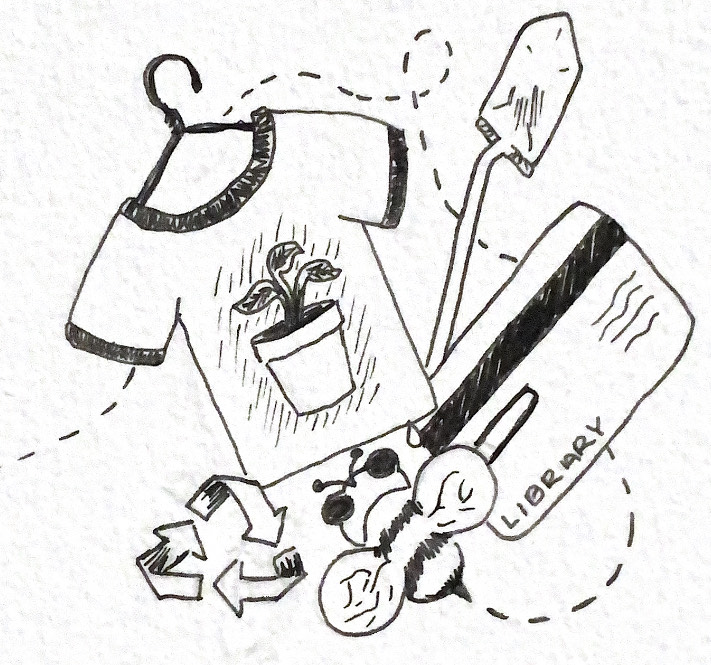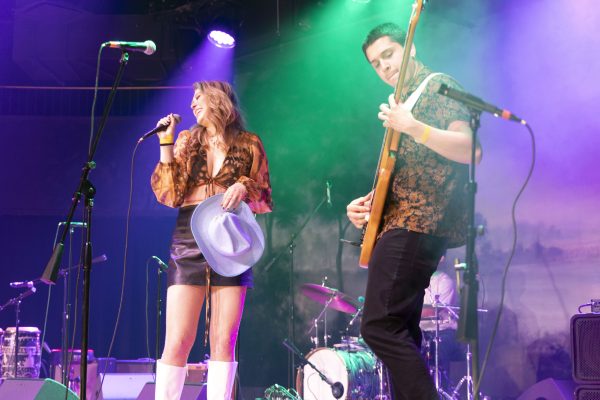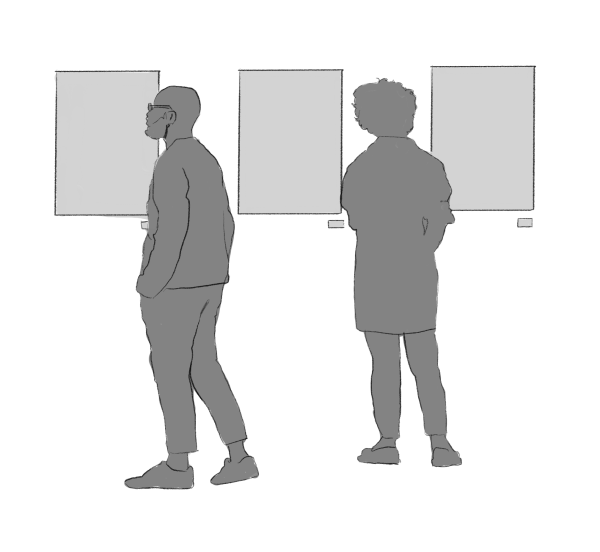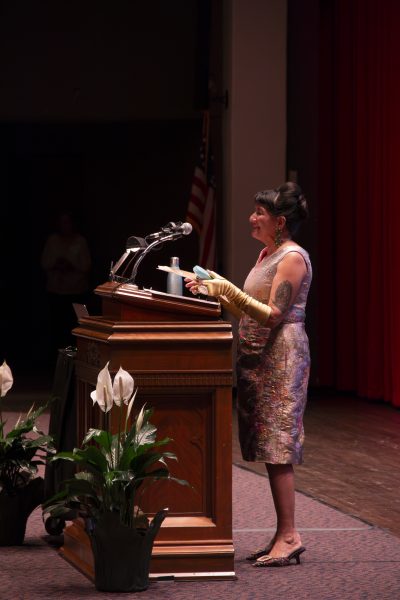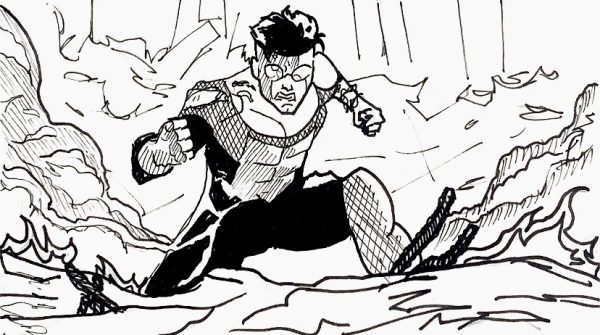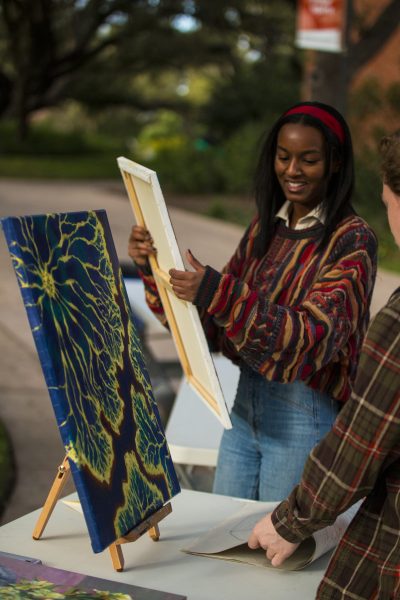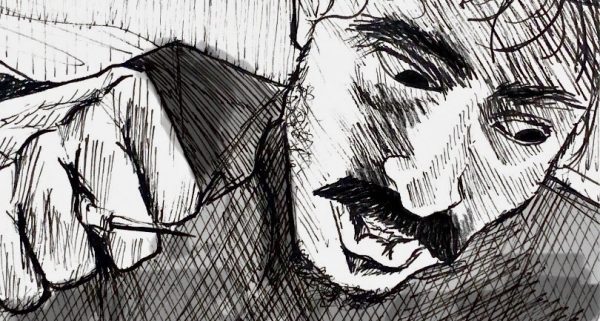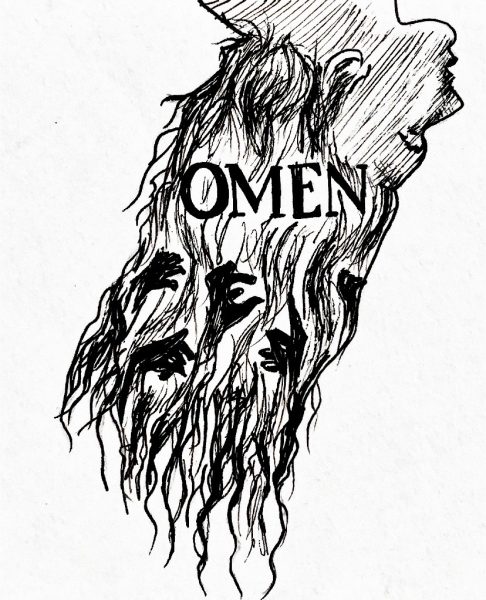“Who doesn’t love to go touch some grass?”
The benefits of bringing environmental awareness to your hobbies this Earth Month
There are many ways that students can get involved with sustainability at Trinity. Kai Velasquez, sophomore sociology and urban studies major and president of the Trinity Bee Club, believes that getting outside and appreciating nature has many benefits, and is also fun.
“Who doesn’t love to go touch some grass?” Velasquez said.
Velasquez does recognize that it can be difficult to feel like individualized sustainability efforts do much to help the environment, but she still believes that they are significant.
“There are only so many things that regular people can do, and part of that is large corporations that are in control of how our climate crisis goes,” Velasquez said. “Though the scientific part of being eco-friendly is super important, there are also many other ways to appreciate and care about nature.”
Environmentally friendly hobbies are one way that people can engage with and become interested in nature, and can be a way to shift our focus from how little we affect the world to how much the world affects us.
Spending time outside in the world can also help, explained Raven Weitzenhoffer, junior environmental studies major.
“I just think doing outdoors things can be more sustainable because … it gives people more of an appreciation for being outdoors. It makes them more likely to be sustainable,” said Weitzenhoffer.
Eco-consciousness does not have to be a monolithic endeavor, though, and finding small ways to just engage with nature can be a stepping stone on the path that leads to larger sustainable efforts. Weitzenhoffer said that finding a community that prioritizes making sustainable efforts helped motivate her to prioritize sustainability herself.
“Being an environmental studies major has allowed me to meet so many other environmentally focused people, which makes doing outdoorsy things so much more accessible. Having a group of people who also have the same passion makes it so much easier to do those things,” she wrote in an email.
Weitzenhoffer met people through her major, but clubs are also a way students can find communities that prioritize connecting with nature. Velasquez, for example, talked about how although the Bee Club doesn’t presently have any bees to care for, they still meet and do activities.
“We’re trying to find ways to have Trinity students be more appreciative of nature,” Velasquez said. “The other day at a meeting, we just wrote little poems to bees.”
Students can also find this kind of community in Outdoor Recreation (OREC), which offers a wide variety of outdoor activities.
Cat Pederson, first-year biochemistry and molecular biology major and OREC leader, describes some of what they do.
“One of the things we do here is slacklining, so that’s a pretty sustainable way to get people outside that’s kind of outside the scopes of canoeing and hiking. Another trip we do is strawberry picking, [which is] overall a pretty sustainable one as well,” Pederson said.
Elliott Conely, junior geosciences major and OREC leader, said that many benefits can come from just being outside.
“By engaging in the outdoors, you kind of understand what’s at stake. You get to see climate change in a different way,” Conely said.
In Conely’s experience, being outside has motivated him to be more eco-friendly, especially when it comes to transportation.
“I think people tend to equate distance traveled with adventure. Like if they get on a plane and cross an ocean, that’s an adventure,” Conely said.
Conely explains that this is not always the case, though, and through leading trips with OREC, he has endeavored to show people how much adventure can be had in a short distance.
“There’s wilderness a lot closer than you think. I think that’s a key to sustainable recreation: looking close to you,” Conely said.
Pederson also said buying equipment for hobbies can be an opportunity to make sustainable efforts.
“Making gear overall is very expensive, and it’s not super environmentally friendly a lot of the time because they’re using tons of plastics and chemicals, costing a lot of money and labor, and then people use it and get rid of it,” Pederson said. “But if you can find gear or clothes or things for your different hobbies in different places, like go find your soccer cleats at Goodwill or something like that.”

